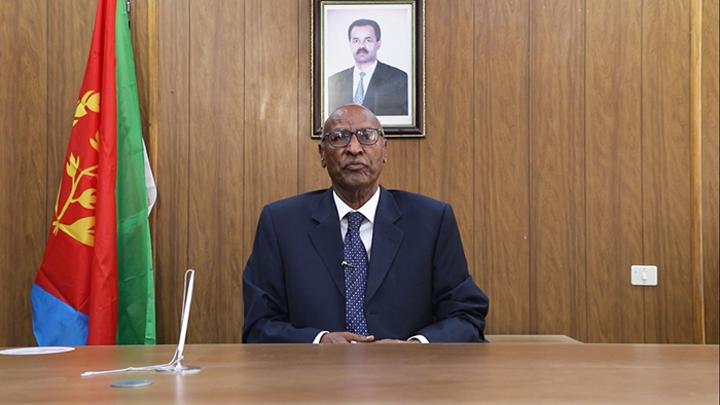Africa-Press – Eritrea. Mr. Chairman!
H.E. António Guterres
UN Secretary-General
Excellencies, Heads of State and Government
Distinguished Heads of Delegation
Ladies and Gentlemen!
Let me first extend my appreciation to the organizers of this important event.
In Eritrea, the challenge of food production starts from our location. As we find ourselves in the Sahel region, which is a water-stressed zone, a huge work of soil and water conservation in general, and water harvesting in the form of ponds and dams in particular, is imperative. Over the last three decades, the Government constructed hundreds of small and big multipurpose dams. The big dams have adequate infrastructures around them in order to lay the ground for modern farming.
This intervention, along with pressurized irrigation technologies, renewable energy, modified rainfed agriculture, protected agriculture, mechanization, improved seeds, and better agricultural practices are helping us in boosting production and productivity.
However, producing enough to eat is one thing, and ensuring the right nutrition is another thing. For this, we have developed a very clear strategy for our smallholder farmers and our small and medium commercial farmers with the aim of practicing climate-smart, intensive and integrated agriculture combining crops and livestock.
Moreover, Eritrea recorded remarkable success in nutrition intervention at the community level through micronutrients deficiency control programs (particularly iron, vitamin A and iodine). Consequently, Eritrea achieved a Vitamin A supplementation of 96% among children under the age of 5. In addition, integrated management of acute malnutrition, together with maternal and neonatal health services, has been expanded in all health facilities.
We are also increasing fish production and consumption from our maritime and freshwater sources.
Better production and better nutrition, however, are not going to be sustainable and resilient unless we address the environmental and safety issues.
Owing to the cross-cutting nature of environmental challenges like climate change, land degradation, and biodiversity loss, great efforts have been made to mainstream environmental issues in all sectors. Furthermore, recognizing land as the basis of life and food production, the Government has laid the foundation for an equitable and fair land tenure system that enables access to land for all citizens regardless of gender, ethnicity, and religion. This policy rectifies the traditional rotational basis to provide lifetime use right for better and sustainable management of the land.
To address the safety issues, the government is promoting and launching liquid and solid bio-fertilizers and bio-pesticides produced from locally available materials.
As a result, we believe that the combined outcome of the above interventions will lead to a better and healthier life.
This will also strengthen the resilience of the people to environmental and other shocks like COVID-19 and the outbreak of desert locusts against which we are doing very fine.
In conclusion, Eritrea believes that the combined knowledge, skills, and experiences of the global community will lead us all to a better and more sustained food system.
I thank you for your attention!







